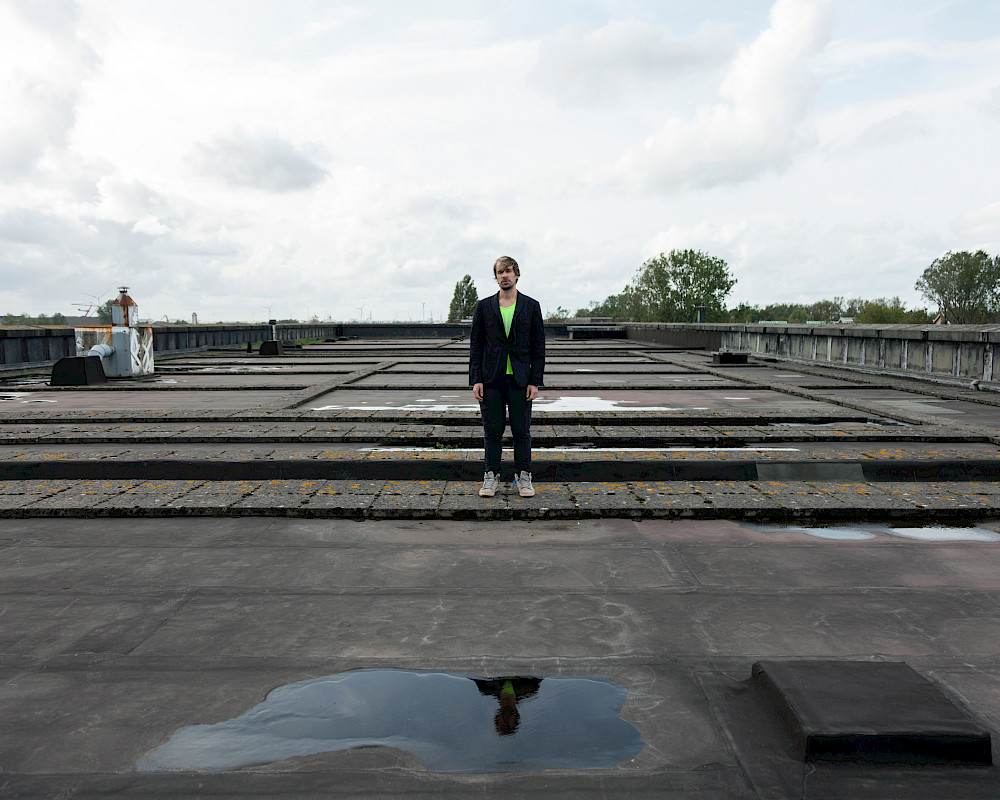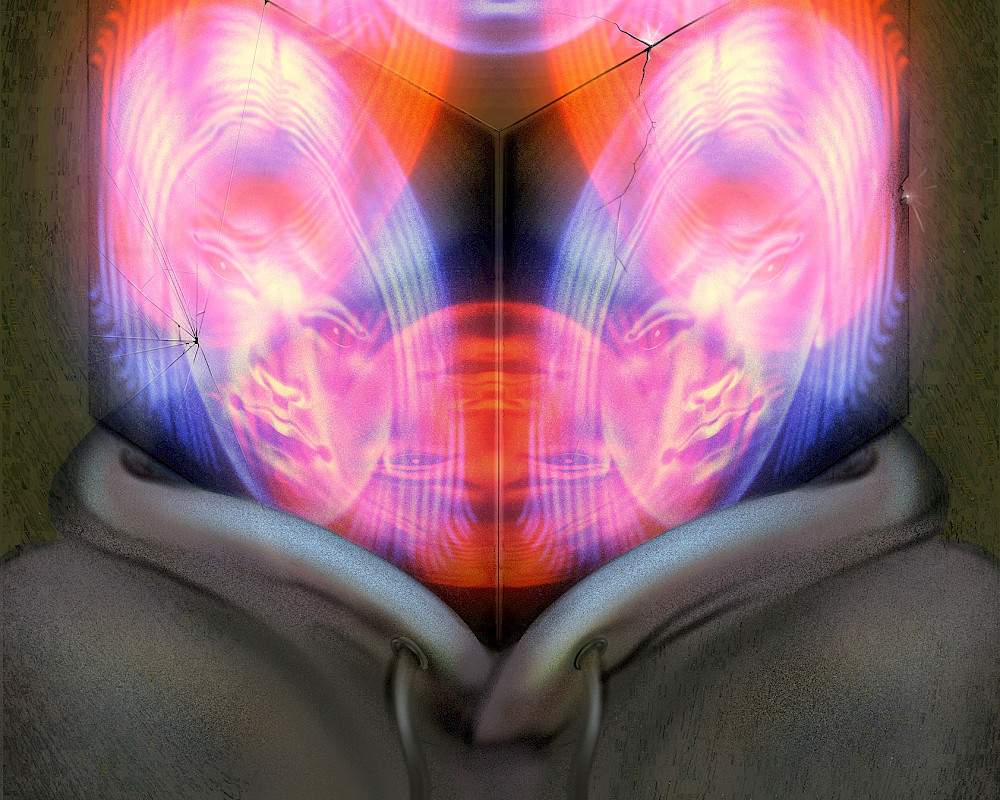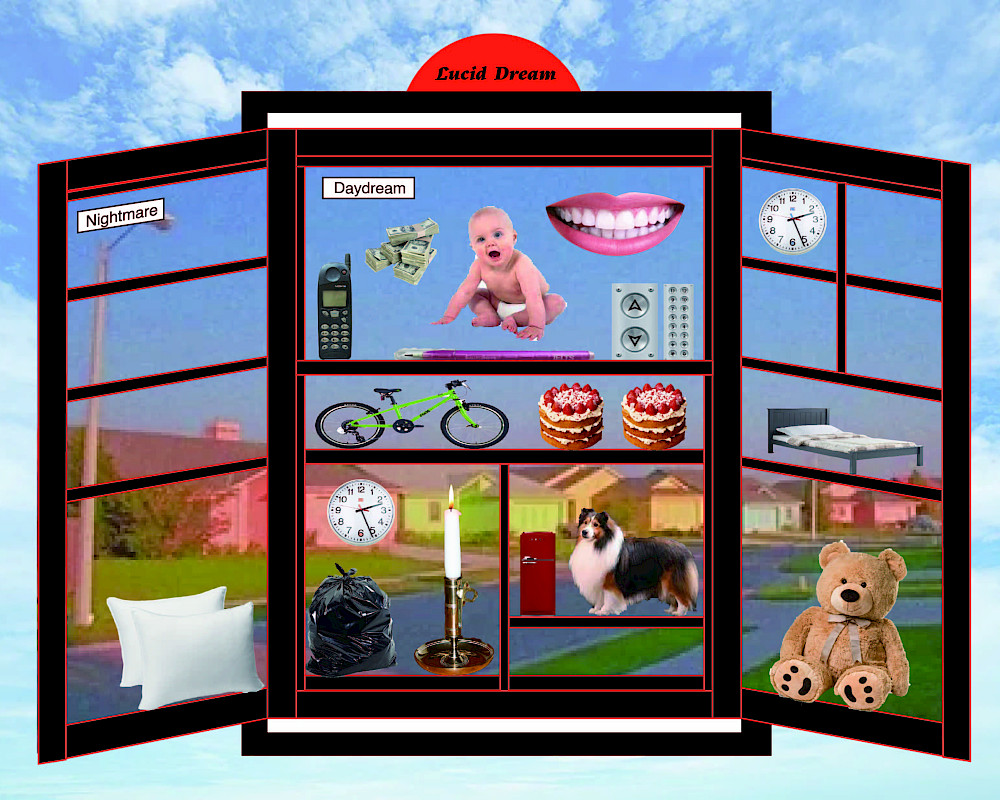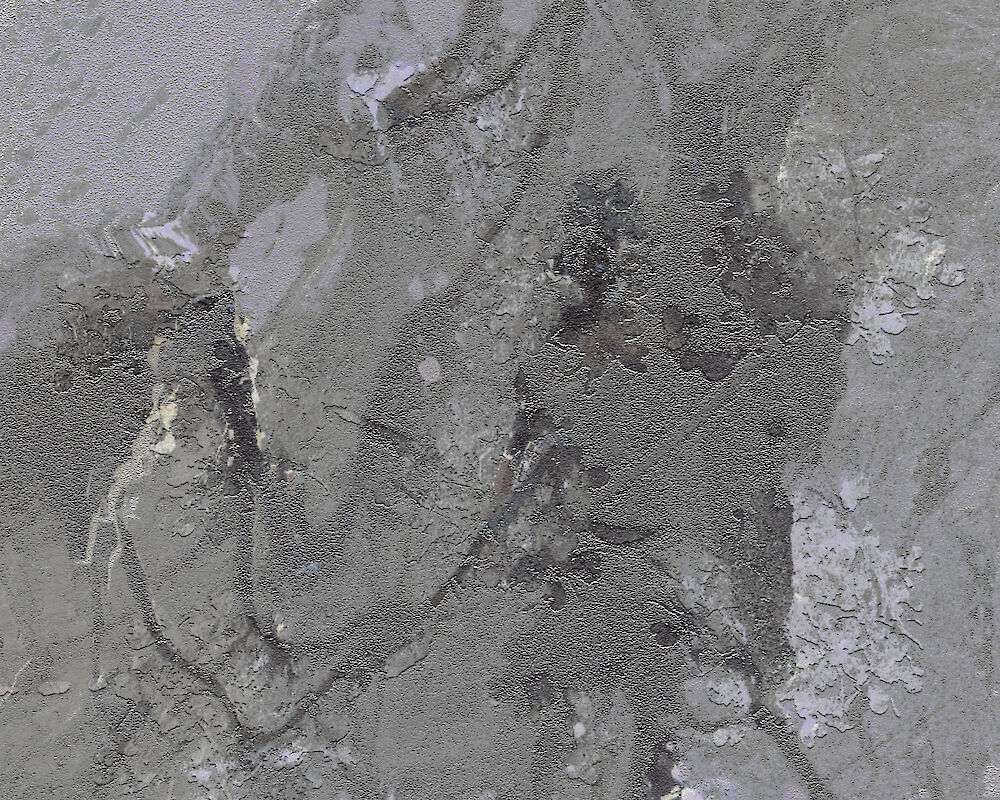poetry
The horizon shifts as I do
Eleni Maragkou
Eleni Maragkou is a Greek writer, editor, and researcher, thinking often and writing about our relationship to the media that shape our everyday lives. Sometimes she lectures about this topic too. She holds a Research MA in new media and digital cultures from the University of Amsterdam.
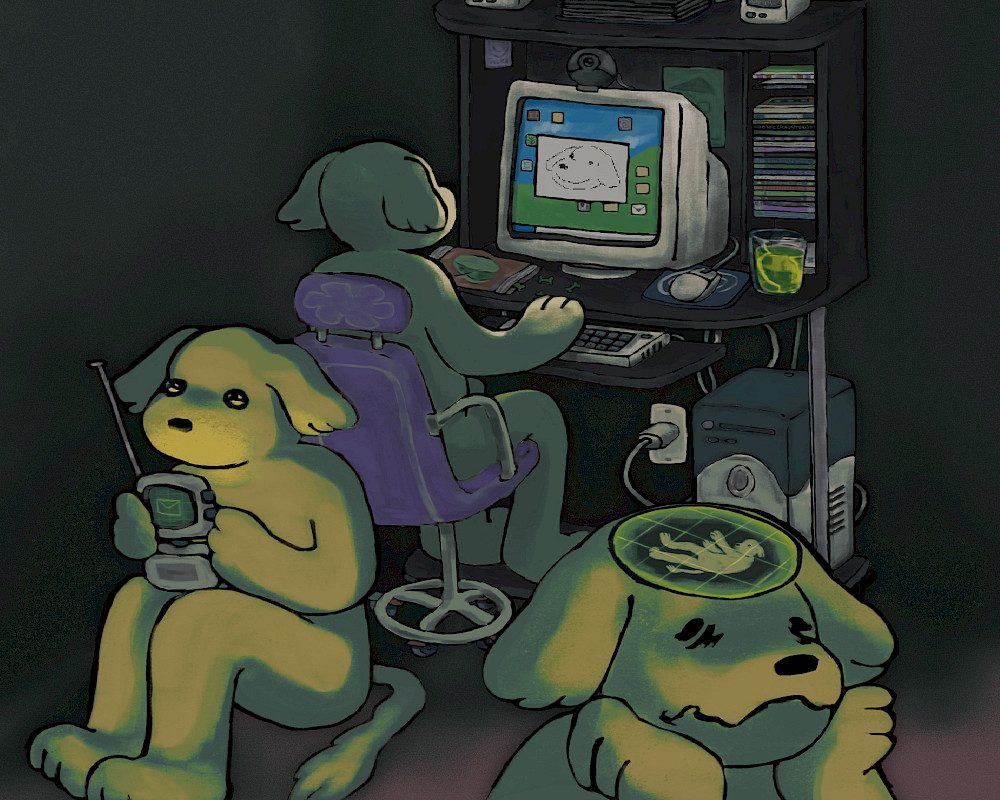
essay
Escape From the Internet
“Remember when on the internet no one knew you were a dog?"
Milo Sharafeddine
Milo is a Lebanese visual artist and writer based in The Hague. Their work is often inspired by the instability of personhood, place and its social meaning, ghosts and haunted symbolism, and technology—specifically digital imagery and recording, internet-age media, and their alternative histories.
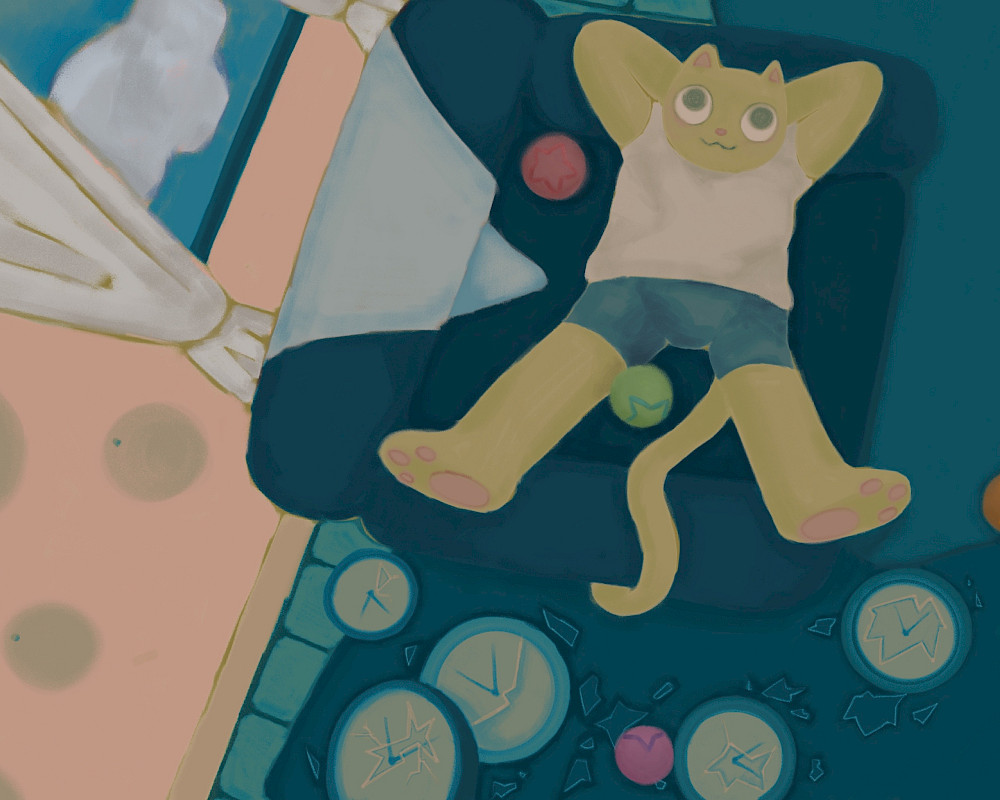
essay
Productively Unproductive
Arne Willée rescues idleness from its morally dubious past and presents it as a needed, critical resource.
video
Air
Nonlinearity is not just a collision of times, but an indifference to time

essay
Ghosthood and the Uncomfortable Familiarity of Haunting
now you tell me I remind you of a friend, but one that you can't seem to name

essay
Escape From the Internet
“Remember when on the internet no one knew you were a dog?"
5
min read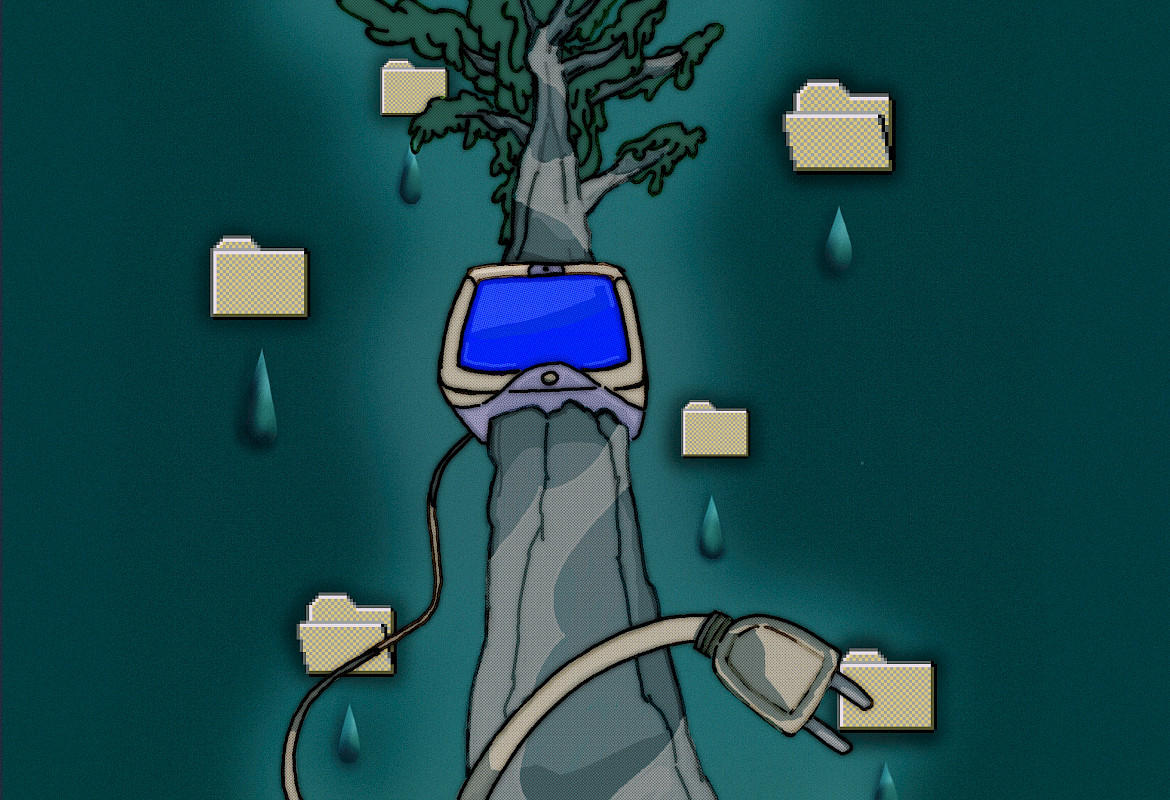
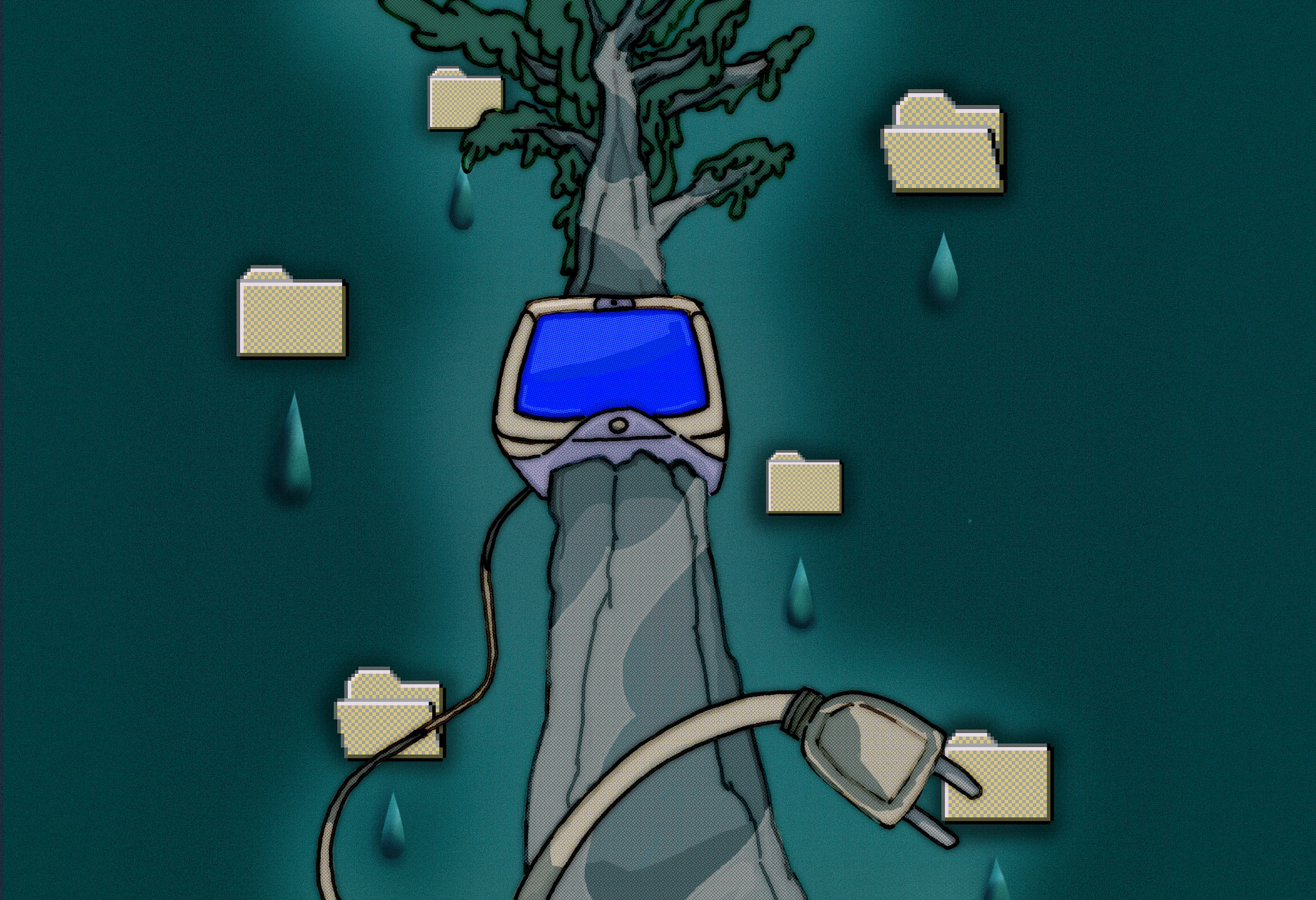
Did you know that sequoia trees can grow taller than data centres can?
In the outskirts of Amsterdam, there are many of the latter, corrupting the horizon. Their waste seeps into the ground, into the water. It makes little three-armed freaks out of us all.
Inside, there are vast bodies of data, tirelessly swelling. They whirr. They produce heat, and although they require a terrible deal of energy to cool down, they only need a few humans to operate.
There is one in particular that stands out, named the Data Tower, garish and jarring, a trespasser in the landscape.
Walking past it, I look at the triangular perforations inscribed on its bronze facade. I can’t discern a door, nor windows—how does the light enter? What happens there at night? Do the data ever get lonely? Do the workers ever wonder whether fragments of themselves also pulsate within these walls?
Standing unsettling and ominous, a humming metal fortress, it reminds me of an alien shrine.
There is so much I don’t know about my quantified self. Yet all of it is neatly stored somewhere—a life scraped and governed. Who owns my data, while I feel so alienated from them? Who profits? Who cares?
I wonder: are my surreptitious Google searches, shameful notes, mediocre drafts, screenshot graveyards also located here? Are they sharing space with yours? Are they happily co-existing?
One thing is certain: even my data are not my own; they are serfs on the cloud, renting their burgage for the low, low price of €2,99 a month. If my memory can’t be a home, perhaps the cloud can. Will all of my mistakes be wiped away if I forget to pay my feudal dues?
On the subject of which, have you heard of the right to be forgotten?
Is it possible to no longer exist, in this time of data fetishism? Is it possible to hold a funeral for a code corpse? Who will attend? Who will remember us, the hoarders of digital detritus, screenshot archivists, collage makers, pastiche curators, human panopticons?
In this attention economy of despair, we are malcontent creators, eking out a tangential existence. Lulled to sleep by artificial light, nourished by polymer dust, fickler than the servers that contain our lives.
Can I even make art if I can’t reach into the pit in my stomach and excavate a slice of my psyche, an offering to the algorithm deity?
After Donna Haraway, I ask: Why should our bodies end at the screen [1]?
If your body becomes an archive of your habits, your machines, your vices, have you, too, become the habits, the machines, the vices?
Because a body is, too, a data centre. An abject inventory of potentials, flailing slightly out of grasp. Or soil that remembers the boot which treads on it.
If my body can’t be a home, the cloud will have to do.
Here’s something else I found:
In the Netherlands, on this uncertain piece of land, data centres are built to endure a flood. When the catastrophe arrives (and arrive it will), and the dams rupture, and this country lives up to its name, the water will submerge the lower levels. No need to fret.
A metaphor is bursting at the seams: the data are stored high up, they’ll be safe.
The flood is elsewhere.
You are here:
At the porous border where the facsimile leaks into the real. Lost in the forever soup, brain coagulated like gravy. Trembling hands, fingering the screen, with greater devotion than a lover. Eyes like impenetrable glass.
Doomscrolling is late capitalism made habitual. On today’s menu:
- An internet psychologist, who promptly spits out a quirky disorder diagnosis.
- An online mob sharpening their pitchforks.
- A child in the throes of shellshock.
- An ad for smoothing cream.
Smooth out your brain, you feckless former “gifted” child. Don’t torment yourself with the violent contradiction, the callous juxtaposition. Enjoy your dopamine fix. The algorithm will optimise your grief for you. There is no time to be wasted. No reward either, no prize to soften the blow. Only yawning repetition.
Haven’t you sufficiently absorbed the toxins? Bloated and miserable, haven’t you had your dose of dystopia yet? What would it take to jolt you out of your slumber?
In the grotesque light of so many lapses of judgement, do you ever wince at your own reflection? Do you cache that feeling too, somewhere out of sight? Is a data centre the repository of all our compunctions?
A thousand little crimes, this digital footprint. A thousand little murders. Is it possible to hold a funeral for all the children whose lives are valued at the same price as this little phone in my hand? Who will attend? Who will remember?
***
Objects enter and leave my field of vision [2]: a peplum of smog, a shower of bombs, a cobalt mine, a windowless tower, the cloud that shrouds the sum of our selves.
Who will move the horizon? Where will it go?
Opposite the data centre, someone has planted a small sequoia tree.
I know that, like the data centres, it is a stranger in this land. But one day, this tree could grow to be ninety meters tall, and then it would surpass the tower in height. Maybe the horizon will shift then. Maybe you and I will too.
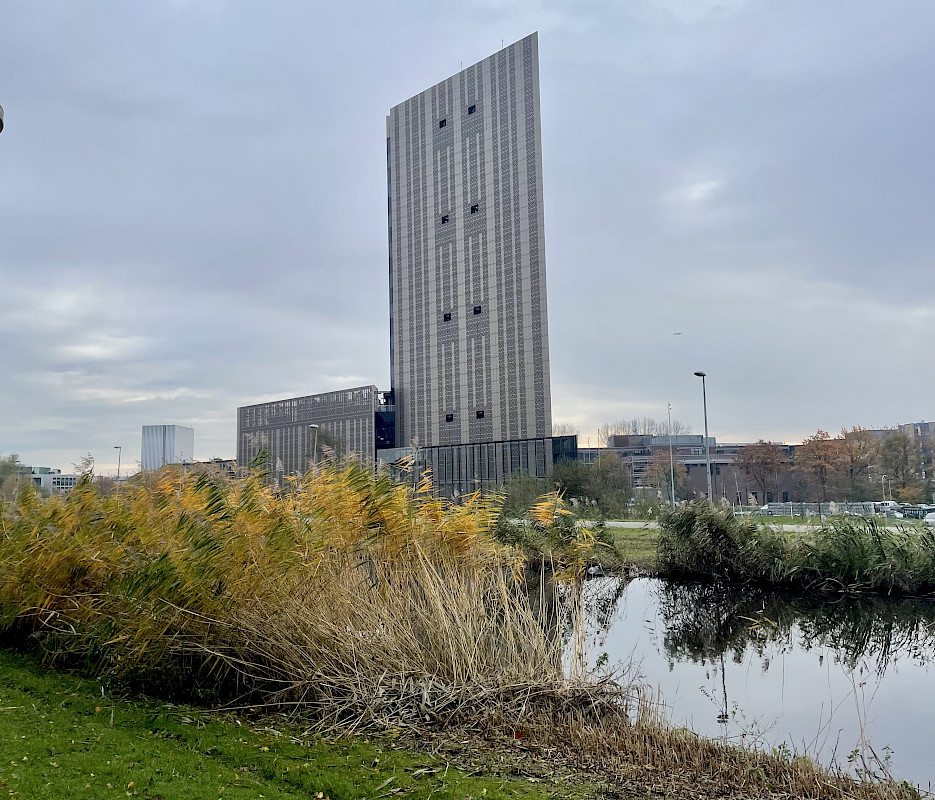
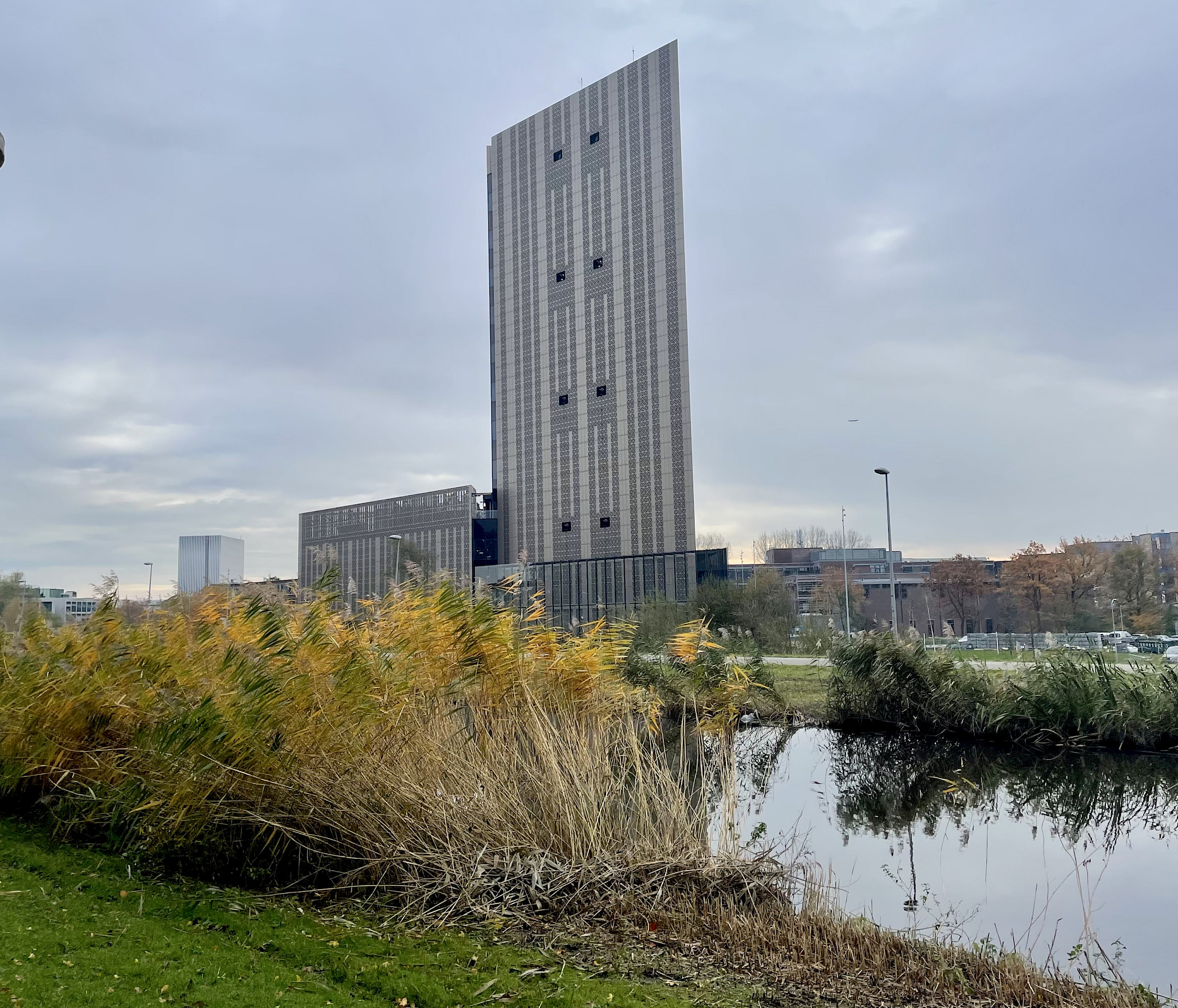
1. After “Why should our bodies end at the skin?”, from Donna Haraway’s Cyborg Manifesto.
2. This poem is loosely inspired by a passage in the essay “On Moving across: Translocative Religion and the Interpreter's Position” by Thomas Tweed (“Objects enter and leave my field of vision. The horizon shifts as I do.”), a walk in Flevopark, and the author’s ambivalent relationship to their datafied self.

